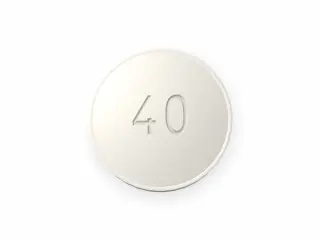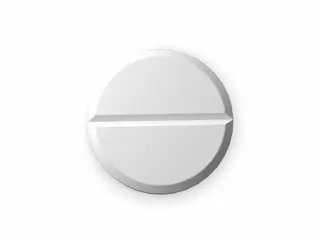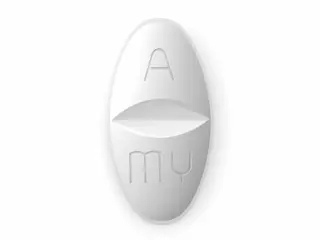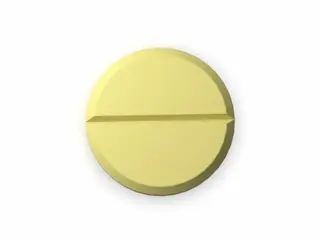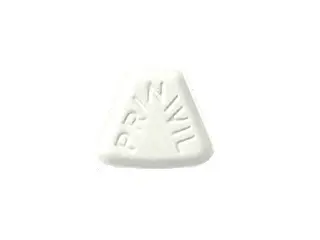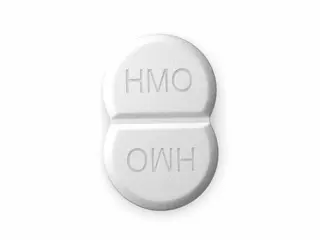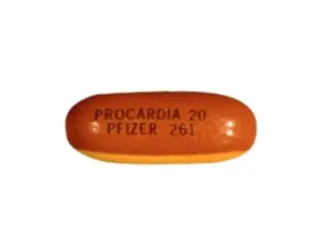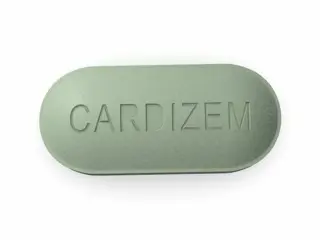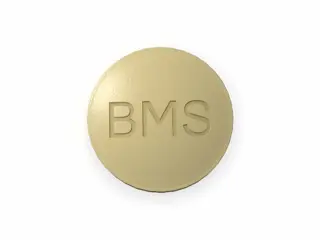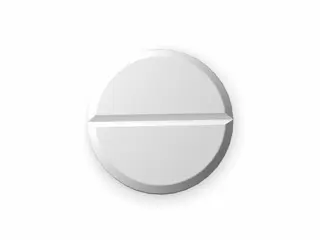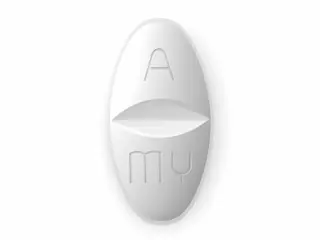Blood Pressure
Find effective blood pressure medications and supplements to help maintain healthy levels and support heart health. Shop trusted brands for better blood pressure management and improve your well-being today.
Blood pressure medications are essential for managing hypertension and reducing the risk of heart disease and stroke. Many types of drugs are available, each with different mechanisms and benefits. Below is a review of some popular blood pressure medications found in the category.
Aceon (Perindopril) is an ACE inhibitor. It helps relax blood vessels and lower blood pressure. It also protects the kidneys and heart. It is taken once daily with or without food. Aceon is effective but may cause cough or dizziness as side effects.
Adalat (Nifedipine) is a calcium channel blocker. It relaxes blood vessels and reduces the workload on the heart. It is often used for stable angina and hypertension. Adalat comes in immediate and extended-release forms. Common side effects include flushing and swelling.
Aldactone (Spironolactone) is a potassium-sparing diuretic. It lowers blood pressure by removing excess fluid while conserving potassium. It is particularly useful in resistant hypertension and heart failure. Patients may experience increased urination or hormonal effects like breast tenderness.
Altace (Ramipril) is an ACE inhibitor that lowers blood pressure and protects the heart and kidneys. Ramipril is taken once or twice daily. It is well-tolerated but may cause a dry cough or increase potassium levels.
Avapro (Irbesartan) is an angiotensin II receptor blocker (ARB). It helps relax blood vessels and reduce blood pressure. Avapro is useful for people who cannot tolerate ACE inhibitors. Side effects are usually mild, such as dizziness or fatigue.
Beloc (Metoprolol) is a beta-blocker. It slows the heart rate and lowers blood pressure. Beloc is commonly prescribed after heart attacks and for hypertension. Side effects may include fatigue and cold hands.
Benicar (Olmesartan) is another ARB that blocks angiotensin II effects. It reduces blood pressure by relaxing vessels. Benicar has a good safety profile but can cause dizziness or gastrointestinal symptoms in some patients.
Calan (Verapamil) and Calan SR are calcium channel blockers used to manage hypertension and arrhythmias. They reduce heart workload and improve blood flow. SR forms provide longer-lasting effects. Side effects can include constipation and swelling.
Cardizem (Diltiazem) relaxes blood vessels and slows heart rate. It is suitable for hypertension and certain heart rhythm disorders. Cardizem offers immediate and extended-release options. Side effects may include headache and rash.
Cartia XT is an extended-release form of diltiazem. It maintains stable blood levels and controls blood pressure throughout the day. It shares similar side effects with Cardizem.
Catapres (Clonidine) lowers blood pressure by acting on the central nervous system. It can be very effective but may cause dry mouth, sedation, or rebound hypertension if stopped abruptly.
Clonidine is also used in patch form for sustained delivery. It is reserved for resistant cases due to its side effect profile.
Combipres is a combination of clonidine and another blood pressure agent. It targets multiple pathways and can be very effective, though side effects may be more pronounced.
Coreg (Carvedilol) is a non-selective beta-blocker with alpha-blocking activity. It lowers blood pressure and improves heart function, especially in heart failure patients. Side effects include fatigue, dizziness, and weight gain.
Coversyl (Perindopril) is similar to Aceon. It is a widely prescribed ACE inhibitor that reduces blood pressure and protects vital organs. Side effects are consistent with other ACE inhibitors.
Cozaar (Losartan) is an ARB that lowers blood pressure by blocking angiotensin II receptors. It has a mild side effect profile and can protect kidney function. Side effects like dizziness are possible.
Diltiazem without brand name works like Cardizem. It is effective to control hypertension and arrhythmias. Side effects include swelling and dizziness.
Esidrix (Hydrochlorothiazide) is a thiazide diuretic. It helps eliminate excess salt and water, lowering blood pressure. It is often combined with other BP drugs. Common side effects include increased urination and low potassium.
Frumil is a combination diuretic containing furosemide and another agent. It is used for high blood pressure and fluid retention. It is potent but can cause electrolyte imbalances.
Hytrin (Terazosin) is an alpha-blocker that relaxes blood vessel muscles. It is used for hypertension and benign prostatic hyperplasia. Common side effects include dizziness and headache.
Hyzaar combines losartan and hydrochlorothiazide. It targets two mechanisms to control blood pressure effectively. This combination is popular for better control with fewer pills. Side effects can include lightheadedness and electrolyte changes.
Inderal (Propranolol) and Inderal LA are beta-blockers. They slow the heart rate and reduce blood pressure. Inderal LA is a long-acting form. Propranolol is used for hypertension, migraines, and anxiety. Side effects may include fatigue, cold extremities, and sleep disturbances.
Isoptin (Verapamil) and Isoptin SR are calcium channel blockers similar to Calan. They lower blood pressure and control heart rhythm. SR forms provide extended action. Side effects include constipation and swelling.
Lasix (Furosemide) is a loop diuretic. It rapidly reduces fluid buildup and lowers blood pressure. It is strong and often reserved for severe cases. Side effects are dehydration and electrolyte loss.
Lisinopril is a common ACE inhibitor. It lowers blood pressure and protects the heart and kidneys. It is usually taken once a day. Cough and dizziness are common side effects.
Lopressor (Metoprolol) slows the heart and reduces blood pressure. It is useful post-heart attack and in hypertension. Side effects include fatigue and cold hands.
Lozol (Indapamide) is a thiazide-like diuretic that removes excess water and salts. It reduces blood pressure and swelling. Side effects include low potassium and increased urination.
Micardis (Telmisartan) is an ARB. It reduces blood pressure by blocking angiotensin II. It also offers cardiovascular protection. Side effects are usually mild, including dizziness.
Microzide (Hydrochlorothiazide) is a mild diuretic that helps lower blood pressure by fluid removal. It is often part of combination therapy. Side effects include electrolyte disturbances.
Minipress (Prazosin) is an alpha-blocker used to relax blood vessels. It is effective but may cause dizziness especially after the first dose.
Norvasc (Amlodipine) is a calcium channel blocker that relaxes blood vessels and reduces workload on the heart. It is popular due to once-daily dosing and good tolerance. Side effects include swelling and flushing.
Prinivil (Lisinopril) is similar to lisinopril brands mentioned. It is widely used and trusted. Side effects and effectiveness align with the ACE inhibitor class.
Procardia (Nifedipine) is a calcium channel blocker used for high blood pressure and angina. Extended-release forms provide steady control. Side effects include swelling and flushing.
Tenormin (Atenolol) is a beta-blocker that decreases heart rate and blood pressure. It is effective but less lipid soluble, so fewer central nervous system effects. Side effects include fatigue and cold extremities.
Toprol (Metoprolol) and Toprol XL control blood pressure and protect the heart. XL is extended-release. They are often prescribed post-heart attack. Common side effects include tiredness and dizziness.
Trandate (Labetalol) blocks alpha and beta receptors, lowering blood pressure efficiently. It is used in hypertension emergencies and pregnancy-induced hypertension. Side effects can include dizziness and fatigue.
Tritace (Ramipril) is an ACE inhibitor similar to Altace. It reduces blood pressure and decreases risks of heart events. Side effects include cough and elevated potassium.
Vasotec (Enalapril) lowers blood pressure by relaxing blood vessels. It protects the heart and kidneys. It may cause dry cough and dizziness.
Verampil and Verapamil are calcium channel blockers that reduce blood pressure and control arrhythmias. Side effects can include constipation and edema.
Zebeta (Bisoprolol) is a beta-blocker that slows heart rate and lowers blood pressure. It's often prescribed for hypertension and heart failure. Side effects include fatigue and dizziness.
Zestoretic combines lisinopril and hydrochlorothiazide. It attacks high blood pressure on two fronts for better control. Side effects may include cough from lisinopril and electrolyte imbalances from hydrochlorothiazide.
Zestril (Lisinopril) is another lisinopril brand. It decreases blood pressure and protects vital organs. Side effects are consistent with ACE inhibitors.
Each medication in the blood pressure category offers unique benefits. ACE inhibitors like lisinopril and ramipril are good for heart and kidney protection. ARBs such as losartan and valsartan offer an alternative with fewer cough side effects. Calcium channel blockers like amlodipine and verapamil help relax vessels and work well for many patients. Beta-blockers are useful in heart rate control and post-heart attack care. Diuretics such as hydrochlorothiazide and furosemide efficiently reduce fluid and ease pressure on vessels. Alpha-blockers are effective but may cause dizziness.
Choosing the right medication depends on individual health status, side effects, and doctor's recommendation. Combining drugs from different classes often leads to better, more stable blood pressure control.
